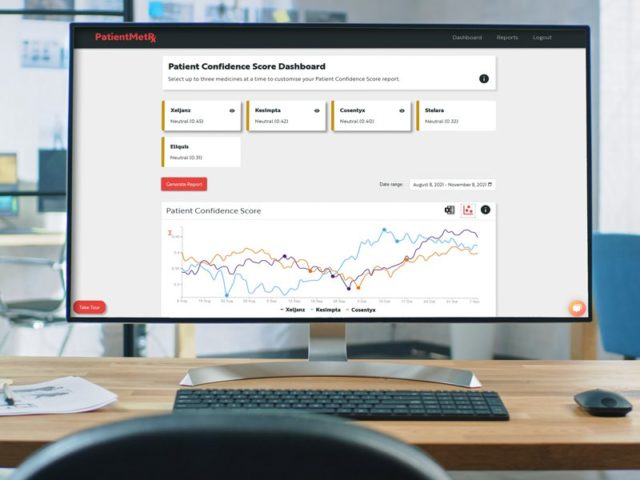
Since everyone seems to be living their lives online these days, it makes sense this is where to find out what patients are really saying about their medicines.
Now, U.K.- and New Jersey-based company Talking Medicines has developed an AI platform called PatientMetRx that filters through millions of online conversations to find out just what patients are saying about their drugs, with the goal of providing key performance indicators of the patient voice.
The platform uses machine learning and natural language processing to find the anonymous information gleaned from hundreds of millions of social media posts.
“We see them as signals, so not identified patients. So, it’s really important to us and that we’re bringing signals in on anonymous levels,” Jo Halliday, co-founder of Talking Medicines, said.
The sources of this information are the usual suspects—Twitter, Reddit, etc.—but also, Halliday says, smaller platforms where the company can get permissions. These outside-the-box sites are good sources of information and are not always places one would expect.
“We don’t just source our signals from healthcare forums, because when you think about people, they talk about their medicines in very different places. So for example, we have an automobile forum, and it’s very, very rich because it’s men talking about their medicines. That’s not what the forum is for, but that’s where they talk about the medicines.”
Currently, the company is focused on English-speaking sources, but there are plans to move into different languages as well as to be able to drill down exactly where are source is located while still keeping the source anonymous.
Is there a concern about bad actors posing as disgruntled users? “No,” says Halliday, as that’s where the “special sauce” of the product comes in.
“If we put millions of signals through—94% of them are noise—they’re not the patient speaking. It could be spam. It could be healthcare professionals, and that’s a different tag, it could be press, or it could be paid advocates. So we’re using human annotators who are very highly trained to train our models. What we’re identifying is what the first person’s voice looks like, and what a patient looks like, and then they tag and that trains our machines. So we have a very accurate classifier to the patient. And 95% accuracy on it,” she said.
The company, which started in 2013 as a consultancy for pharma, is deeply based in life sciences and has just secured a 1.5 million pound sterling funding round to support its expansion into the U.S. Talking Medicines also just launched an office in New Jersey.






